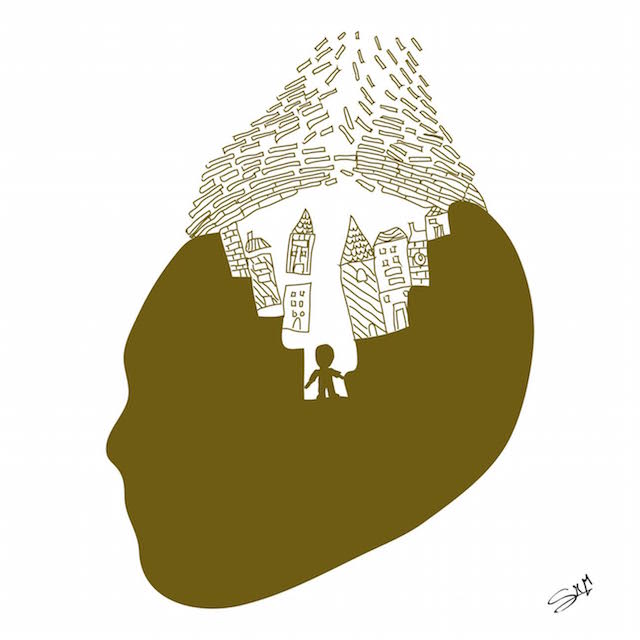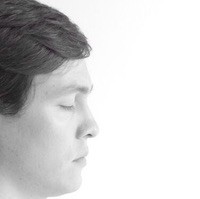Last weekend I went to the movies with my wife.
We saw “Inside Out” and it was definitely an emotional ride. In a fun and educational way it clearly describes how human beings are controlled by our mind and our emotions.
The main character, Riley, is an 11-year-old girl who loves playing hockey. Her Midwest life drastically changes when her father gets a new job in San Francisco.
Her adjustment to this new city gets rough, basically because she brings along with her all the memories—happy and sad—from her prior home, and the little voices inside her head obviously come too, her team of emotions: Joy, Sadness, Anger, Fear and Disgust, that trigger her day and night.
In the same way as Riley, we all grow up believing that we are our mind. This is why it’s absolutely normal for us to obey what it says. The mind, however, is only a depository of experiences, and we are the spectators of those memories.
Let me explain…
Each lived experience is perceived by our senses as if it was produced in a recording studio: each smell, taste, sensation, form, colour, feeling, is unmistakably saved just as we experienced it. This is why when you wear sunblock, its smell suddenly awakens in you a “beach feel,” and if that memory is a positive one for your mind, you feel happy.
The mind is like a movie theatre, and we are the public. When we identify with the movie that is currently playing it becomes so real that we start crying when it’s sad, or smiling when it’s happy.
Each movie we record with our senses is carefully stored in our subconscious, and every time we live a similar experience, the same feelings and emotions, reactions and behaviours, get activated.
This causes us to often act without thinking, say things we didn’t mean, or do things we’ll regret. This all happens when our capacity to reflect upon ourselves is asleep.
Let’s suppose that after a year of living in San Francisco, Riley’s father gets a promotion and this time they have to move to New York. The news then triggers the girl’s subconscious to remember her last moving experience and how traumatic it was. This memory tells her that the same will possibly happen with this new city.
When Riley’s mind says this, in that precise moment she has two options: to accept or reject this belief.
In the case where Riley accepts this belief, her emotions Fear, Anger and Disgust become activated, which leads her to strongly yell at her parents “If you move to a different place again, you can forget about me, I’m not going!” Her mother, feeling that she doesn’t want to upset her daughter by uprooting her once more, decides not to support her husband with his promotion, creating a tense and heartbreaking situation for the three members of the family.
What may have happened if Riley had known about the reflexive meditation I’m going to teach you?
Let’s find out.
4 steps for a reflexive meditation:
Step 1: Be aware that you are not your mind, but listen carefully to what it has to say.
Step 2: Explore your past to find where these thoughts and beliefs come from.
Step 3: Reflect on whether this belief is actually true; compare it with reality.
Step 4: Now that you have control over the way you react to your emotions, think about the most logical way to act, briefly analyse the pros and cons.
This kind of reflexive meditation is simple, but in its simplicity is its power.
This is what may have happened if Riley had done this exercise when triggered:
Riley would have listened to her mind prior to acting, and would have heard something like this: “All new cities are awful. If we move far away once more I’m definitely going to be miserable again.”
Riley would have analysed her past: “This belief comes from my prior experience of moving from Minnesota to San Francisco, when I only felt anger, fear and disgust all the time.”
Riley would reflect: “Now that I think about it, San Francisco has turned out to be a very nice city; therefore not all new cities are bad. The fact that we are moving away to New York doesn’t mean I’m going to be unhappy.”
Riley would think: “If I start a discussion with my dad and make him choose between me and his promotion, he would probably choose me and we would stay here in San Francisco, to his dismay. But if he doesn’t, then I lose him, and the family would be broken apart, and I don’t want that. Maybe I should be open to new adventures. I could even join a new hockey team in New York.”
Your daily life doesn’t have to be a replay of the past.
Next time you feel like an unpleasant reaction is about to get activated in you, practice this short reflexive meditation.
It puts your emotions and your decisions in your hands, and not in an unavoidable destiny.
~
Relephant Read:
Mindfulness Meditation to Transform our World.
~
Author: Santiago Martinez
Editor: Renee Jahnke
Image: Author’s Own












Read 8 comments and reply